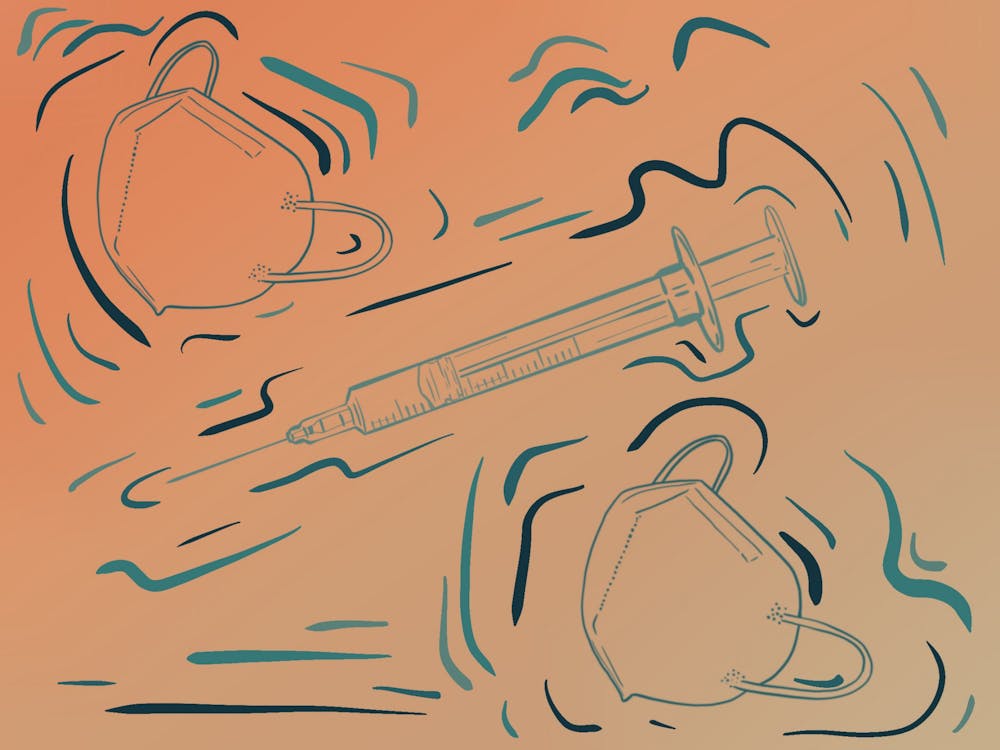Vaccine providers in Athens are steadily administering COVID-19 booster shots as Ohio University students return to campus in the midst of the omicron wave.
Gillian Ice, special assistant to the president for public health operations, said the positivity rate on campus is relatively high compared to previous data, with over 2,000 students testing positive for COVID-19 during winter break or prior to the Spring Semester move-in.
To help fight the omicron variant, OU is encouraging students, faculty and staff to receive a COVID-19 booster shot, and as of Jan. 13, 5,651 individuals have registered booster shots with the university.
OU is not currently requiring its students, faculty and staff to receive a COVID-19 booster shot; however, individuals were required to be fully vaccinated by Nov. 15.
James Gaskell, health commissioner at the Athens City-County Health Department, or ACCHD, said people with their primary vaccine have around 40% to 50% protection against the omicron variant, while those with booster shots have around 85% protection.
The health department holds four general vaccine clinics per week and provides around 25 to 30 booster shots through those clinics. The department also distributes around 15 booster shots at its child clinics held on Thursdays, Gaskell said.
“Not many students have found their way to us yet,” Gaskell said. “OU has a vaccination site on campus that they can go to, so they don't have to come down to the health department’s (clinics). It’s closer for them.”
Meredith Erlewine, public health communications specialist with OU’s COVID Operations team, said the university’s clinics were “overbooked each time” through December and as the holiday season approached.
This semester, those clinics have continued with strong attendance, Jim Sabin, a university spokesperson, said. 266 vaccines were administered on Jan. 7 and 244 on Jan. 14. OU was not able to detail whether those vaccines were booster shots, but the clinics provide both primary and booster vaccines that are offered Fridays at the Heritage Community Clinic.
Gaskell said it is important for students to get vaccinated due to the transmission rates of the omicron variant. Students are also at risk of spreading COVID-19 because they live in close proximity to one another within residence halls.
“If they get disease, it's going to be with omicron, and two doses of vaccine does not provide much protection,” Gaskell said.
CVS is continuing to provide vaccines as well, and appointments are available on its website.






